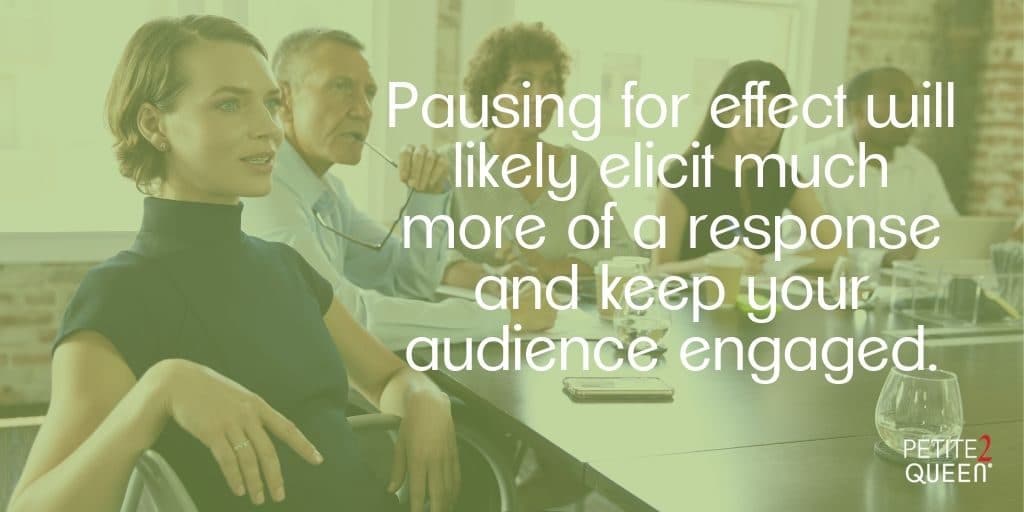Sales is an art that you want to master; in a large way, it’s the art of speaking. Introducing a product or service to a potential client, addressing their hesitations and concerns, and providing the product or service they need is what it’s all about, right? Not quite. There’s more to sales than just talking. Don’t think of it as your own personal stage, ready for a well-rehearsed monologue. Rather, keep in mind that sales is about conversation. Remember to pause—for your own benefit, and more importantly to build a dialogue with your clients. How can pauses empower your career?
Speak With Purpose
When you’re talking with someone, it can be easy to let your emotions – excitement, nervousness – carry you away. The words keep streaming out, and you may lose your thoughts and start repeating yourself. Instead of continuing to talk, pause for a moment. It will allow you to gather your thoughts, articulate your next point, and speak with more purpose.
A brief pause can also be the tool that controls how you convey something. Perhaps you want to emphasize a certain point. Pausing, even just for a couple of seconds, will make your next word or phrase stand out. Pausing for effect will likely elicit much more of a response and keep your audience engaged.

To monitor how the audience is receiving your message, you may want to pause. Take a moment to gauge their reactions – do they seem interested, bored, or confused? Let them ask questions or make comments. Engaging your audience will help you speak with them more effectively. You may need to adjust your message or highlight different aspects to make your point.
Using this powerful communication tool will also show confidence. When used correctly, pauses show that you are comfortable with what you’re saying and are not afraid of a moment of silence. Silences are not always awkward or uncomfortable. Quite the contrary, they are often necessary for people to process information and form a response. Stay focused on your intent and purpose, and your audience will notice the confidence you exude as you pause for effect.
Let Your Audience Respond
Pauses are helpful and important for your listener, too. They present an opportunity for them to focus, respond, and engage in the dialogue. When you’re talking so much that the listener can’t get a word in edgewise, you’re completely missing the engagement component.

Frequently, your audience will have a good idea of what it is they’re looking for in a product or service. Give them a chance to speak up and share their comments, concerns, and questions. With every question you learn more of what your audience needs and you’ll be better able to serve them. Every sales negotiation is not about you, it is about them, and the audience plays the biggest part of the equation.
Remember: It’s a Conversation
As with most interactions, remember that a sales dialogue is a conversation, not a monologue. Don’t dominate the discussion; no one likes to be stuck on the wrong end of a one-sided conversation. When you do all the talking, it implies you think only that what you say is important. A true conversation allows both sides to communicate and share their ideas, which typically leads to a mutually beneficial outcome.
As Mark Twain once said, “The right word may be effective, but no word was ever as effective as a rightly-timed pause.”

Amanda Whitbeck is Vice President of Operations at Petite2Queen. Since earning her master’s degree in Global Entertainment & Music Business from Berklee College of Music, Amanda has played key roles facilitating growth at start-ups. She’s also worked in diverse sectors of the music industry, from live events promotion to entertainment journalism. She brings her expertise in music business, writing, and website development to Petite2Queen.

